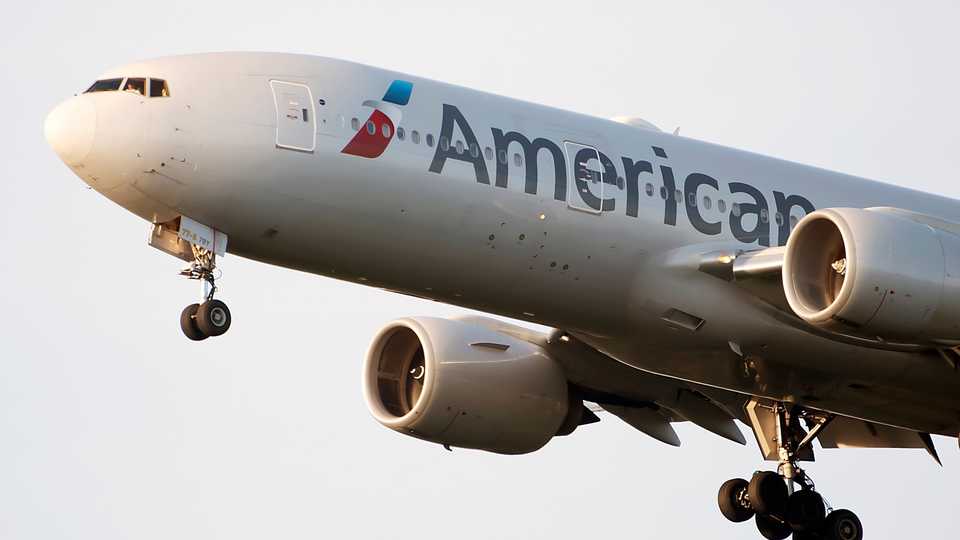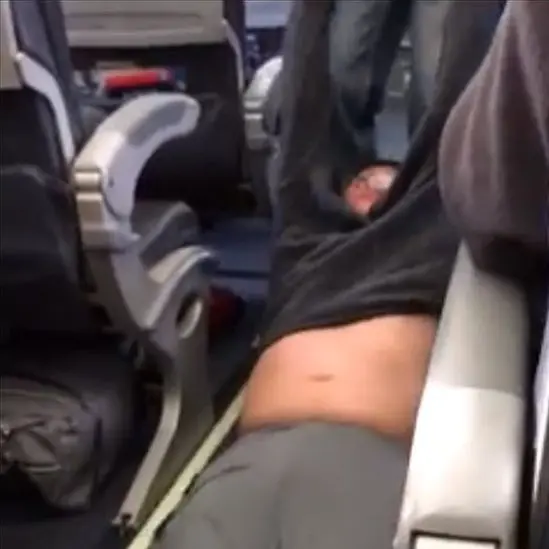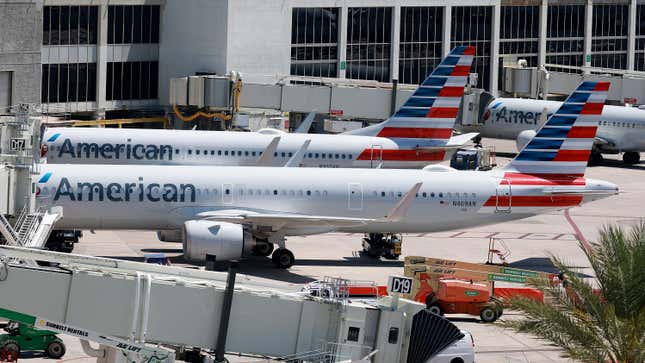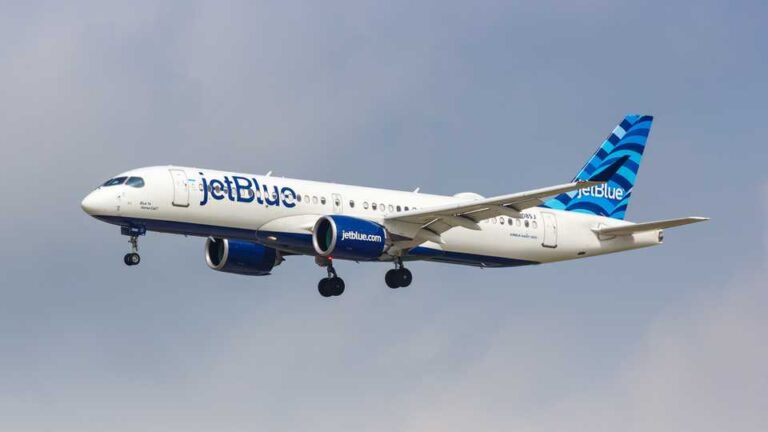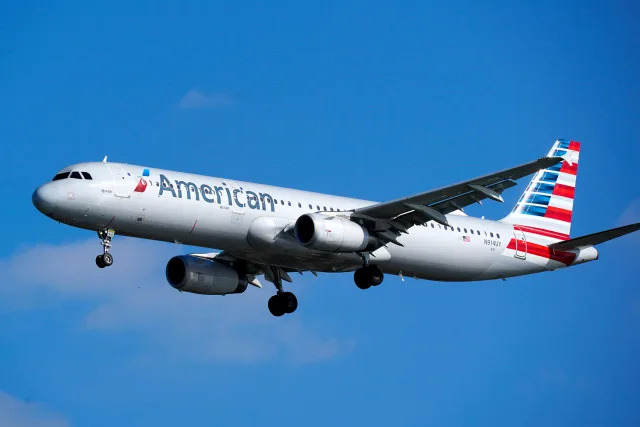New DOT Rule Bars US Airlines From Charging Parents To Sit by Kids
The US Department of Transportation has put forward legislation to prevent airlines from charging extra fees for families with young children to sit together. This would apply to both US and foreign-based carriers. As part of the legislation, airlines would be required to seat families with children aged 13 and under together and for free. They would have to confirm that parents are seated next to their children within 48 hours of booking. According to the ruling, this should be in the same row, not separated by an aisle. However, in cases where that is not possible, across the aisle or directly in front or behind a parent is also compliant. If that is not possible, the airline must provide a free refund, or the option to wait for adjacent seats to become available (if this is the passengers’ preferred option). Airlines that do not comply could face civil penalties.
Making traveling with children easier
The idea was first put forward in February 2023, and in May 2024 was signed into law by President Joe Biden. As reported by USA Today, the country’s Transportation Secretary, Pete Buttigieg, explained the reasoning behind the proposed legislation, saying,
“Many airlines still don’t guarantee family seating, which means parents wonder if they’ll have to pay extra just to be seated with their young child. Flying with children is already complicated enough without having to worry about that. The new rule we’re proposing today, which would ban airlines from charging parents a fee to sit with their children, is another example of the Biden-Harris Administration using all the tools at our disposal to lower costs for families and protect consumers from unfair practices.”Strengthening consumer rights
President Biden has been keen to revolutionize the law around air travel, calling for stricter, more customer-friendly regulations and increasing transparency. His administration has also blocked further airline consolidation in recent months, putting an end to the proposed merger between JetBlue and Spirit Airlines, and ending the alliance between JetBlue and American Airlines.
Back in March 2023, the DoT launched its family seating dashboard. So far, the tool has shown that four airlines now guarantee family seating without additional fees – American Airlines, Frontier Airlines, JetBlue, and Alaska Airlines. According to the DoT, the country’s other major carriers have policies that attempt to seat families together but fall short of a guarantee.
What do you think of the Department of Transportation’s plans to prevent airlines from charging additional fees for families to sit together? Share your thoughts by commenting below.
The U.S. Department of Transportation (DoT) has proposed groundbreaking legislation to prevent airlines from charging extra fees for families with young children to sit together. This new rule, applicable to both U.S. and foreign-based carriers, mandates that airlines seat families with children aged 13 and under together at no additional cost. The legislation requires airlines to confirm that parents are seated next to their children within 48 hours of booking, ensuring that they are in the same row and not separated by an aisle. In cases where adjacent seating is not possible, airlines must seat families across the aisle or directly in front or behind each other. If these seating arrangements are not feasible, airlines must provide a free refund or offer the option to wait for adjacent seats to become available if this is the passengers’ preferred choice. Non-compliance with this legislation could result in civil penalties for the airlines.
Making Traveling with Children Easier
The initiative was first proposed in February 2023 and was signed into law by President Joe Biden in May 2024. Transportation Secretary Pete Buttigieg explained the rationale behind the legislation, emphasizing the need to simplify air travel for families. “Many airlines still don’t guarantee family seating, which means parents wonder if they’ll have to pay extra just to be seated with their young child. Flying with children is already complicated enough without having to worry about that. The new rule we’re proposing today, which would ban airlines from charging parents a fee to sit with their children, is another example of the Biden-Harris Administration using all the tools at our disposal to lower costs for families and protect consumers from unfair practices,” Buttigieg stated.
Strengthening Consumer Rights
President Biden has prioritized transforming air travel laws to make them more consumer-friendly and transparent. His administration has blocked further airline consolidation, recently halting the proposed merger between JetBlue and Spirit Airlines and ending the alliance between JetBlue and American Airlines. These actions reflect a broader strategy to enhance competition and prevent monopolistic practices within the airline industry.
In March 2023, the DoT launched its family seating dashboard, a tool that tracks airlines’ policies on family seating. As of now, four airlines—American Airlines, Frontier Airlines, JetBlue, and Alaska Airlines—guarantee family seating without additional fees. However, the DoT notes that other major carriers have policies attempting to seat families together but do not provide a guarantee.
The Importance of Family Seating
Ensuring that families, especially those with young children, can sit together without incurring additional fees is crucial for several reasons. Firstly, it alleviates the stress and anxiety parents often experience when traveling with children. Knowing they will be seated together allows parents to focus on other aspects of travel preparation, making the overall experience smoother and more enjoyable.
Secondly, having children seated with their parents enhances safety. In the event of an emergency, parents need to be able to assist and comfort their children quickly. Additionally, flight attendants can perform their duties more efficiently when families are seated together, as they won’t need to spend extra time addressing concerns related to separated family members.
Finally, this legislation promotes fairness and equity. Families should not have to pay extra to ensure they can sit together, especially considering the high cost of air travel. By eliminating these fees, the DoT is taking a significant step towards making air travel more accessible and affordable for families.
Industry Response and Implementation
Airlines will need to adjust their seating policies and booking systems to comply with the new legislation. This may involve updating software to ensure that family members are automatically seated together during the booking process. Additionally, airlines might need to provide training for staff to handle these requirements and ensure compliance.
The industry response to the legislation has been mixed. Some airlines have welcomed the changes, recognizing the benefits of improved customer satisfaction and loyalty. Others have expressed concerns about the potential financial impact and the logistical challenges of implementing the new rules.
However, the long-term benefits of these changes are likely to outweigh the initial challenges. By fostering a more family-friendly travel environment, airlines can attract more passengers and improve their reputation for customer service. Additionally, the increased transparency and fairness promoted by this legislation align with broader industry trends toward enhancing passenger rights and improving the overall travel experience.
Looking Ahead
As the legislation takes effect, it will be important to monitor its impact on both airlines and passengers. The DoT and other regulatory bodies will need to ensure compliance and address any issues that arise during the implementation phase. Additionally, ongoing feedback from passengers and industry stakeholders will be crucial in refining and improving the regulations.
The successful implementation of this legislation could pave the way for further reforms aimed at enhancing consumer rights and improving the air travel experience. For instance, similar measures could be introduced to address other common issues faced by passengers, such as baggage fees, flight delays, and cancellations.
Conclusion
The U.S. Department of Transportation’s legislation to prevent airlines from charging extra fees for families with young children to sit together marks a significant step forward in consumer protection and air travel reform. By ensuring that families can sit together without additional costs, the DoT is making travel easier, safer, and more equitable for parents and children alike. As the industry adapts to these new requirements, the long-term benefits for passengers and airlines will likely become increasingly evident. This initiative represents a positive move towards a more transparent, fair, and family-friendly air travel industry.
